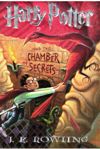Harvard linguist Melisande Stokes is approached by government operative Tristan Lyons with a request to translate a large number of ancient documents, once she has signed a non-disclosure agreement. As she works through them she notices a large number of references to magic. It turns out that magic actually existed until
The backbone of the narrative is Melisande’s “Diachronicle” (trust a linguist to pun on a
The premise is clever, and more than a bit silly. However, the treatment of the entire situation by the government bureaucracy is most certainly not. And that is one of the important themes of this book. The intersecting shenanigans of bureaucrats, academics and operatives working together make for hilarious passages of dry humour, while at the same time the reader is appalled at the lack of common sense of bureaucrats who spend too little time in the real world. Even the use “official-ese” can change perceptions, and perception is a very important part of this story, on several levels.








